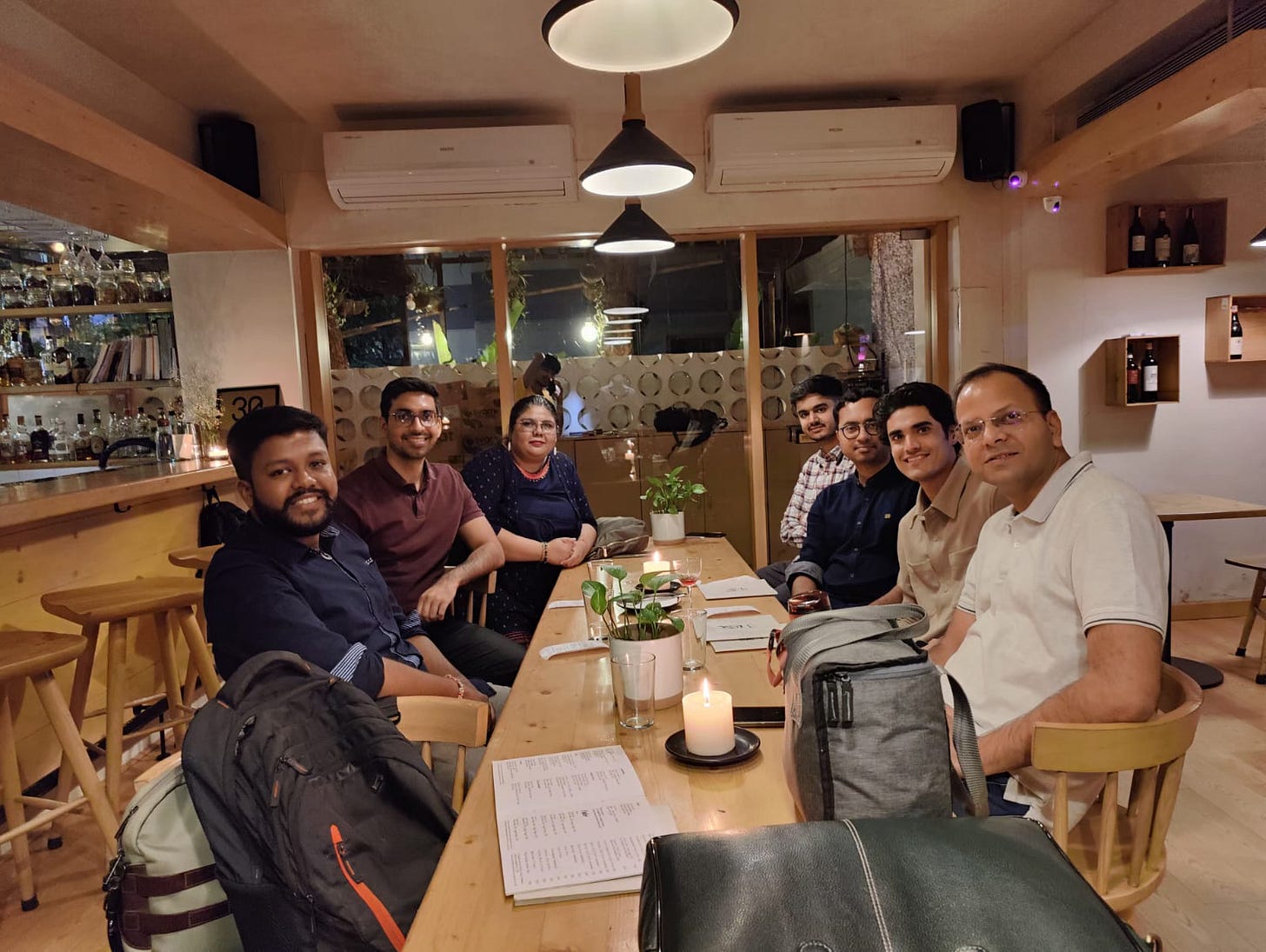How to fail?
Building a healthy relationship with failure
Dear readers,
This past week Network Capital members meet in Mumbai.
In the coming weeks, they will be meeting for —
NC Oxford Meetup on Feb 22
NC Delhi Picnic on Feb 25
NC Salon: Inflection - A Roadmap for leaders at crossroads on March 1
In August 2023, I received sixteen different letters of rejection for the multiple things I had applied for earlier in the year. Growing up, I had been decent at sports and very early I learned that failures are not necessarily bad. Some good and a lot of lessons can come out of it.
Like a lot of popular career coaches will tell you today, I had figured out for myself, that failure is inevitable. If you try you are bound to fail. If you can, try to look at it as a learning opportunity. This advice has worked for most instances in my life, but there are moments where my antagonist relationship with failure consumes me more than I would like to admit. It gets to me in ways I’m decently embarrassed by and makes me react in ways I’m not proud of.
Making sense of failure, let me to the work of Elizabeth Day. She is a British author, journalist, and broadcaster. She is known for her work in both fiction and non-fiction writing. Day has authored several novels, including "Scissors, Paper, Stone" (2011), "Home Fires" (2013), and "Paradise City" (2015). In addition to her fiction work, she is also a columnist for various publications such as The Observer and The Telegraph.
Day is perhaps best recognized for her non-fiction writing and journalism. She has written for numerous publications on a wide range of topics including culture, literature, and personal development. In particular, her memoir "How to Fail: Everything I've Ever Learned From Things Going Wrong" (2019) gained considerable acclaim. In this book, Day explores her own experiences of failure and the lessons she has learned from them.
In the book, Day shares personal anecdotes from her own life, recounting various instances where things didn't go as planned and exploring the lessons she learned from these experiences. Through her reflections, she delves into themes such as ambition, relationships, career setbacks, and the pressures of societal expectations.
“Life crises have a way of doing that: they strip you of your old certainties and throw you into chaos. The only way to survive is to surrender to the process. When you emerge, blinking, into the light, you have to rebuild what you thought you knew about yourself.”
― Elizabeth Day
The book is a delightful read. It is funny witty and deeply personal. The kind of writing that humanizes failure.
This book comes from her very popular podcast — "How To Fail With Elizabeth Day”. After years of running it and interviewing some of the most interesting people and discussing their personal relationship with failure, Elizabeth writes of her own experience.
Through the meandering journey of the book, she builds a guide to navigating failure. Some of her suggestions are obvious —
Reframe failure as "learning experiences": Instead of dwelling on negative emotions, view failures as opportunities to learn and improve. Analyze what went wrong and use that knowledge to make better choices in the future. Basically the 101 advice on failure.



